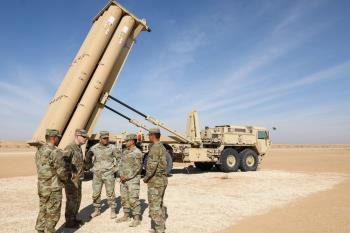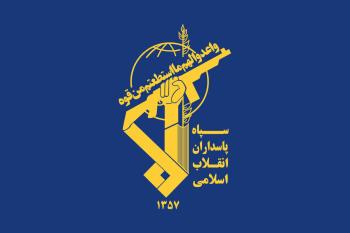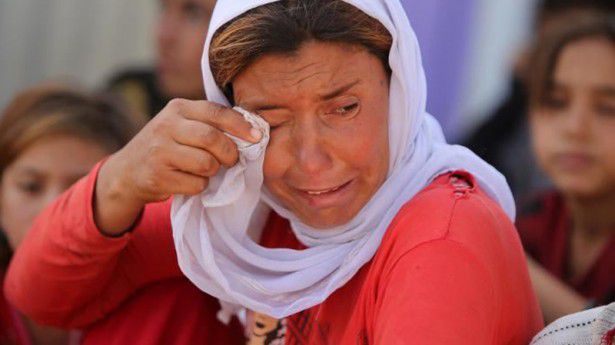Alwaght-Human Rights Watch believes hundreds of women, many of them Yazidi, are being sold into forced marriages by ISIS terrorist group .
Yazidis are predominantly ethnically Kurdish, and have kept alive their syncretic religion for centuries, despite many years of oppression and threatened extermination. The global number of Yazidis are around 700,000 people, with the vast majority of them concentrated in northern Iraq, in Sinjar .
They sold Amsha for $12. Other girls and women went for more, much more. But Amsha had a small son and was pregnant with her second child. She had already seen ISIS terrorists execute her husband in front of her. Now the terror of that crime and the fear of captivity was to be replaced by the indignity and humiliation of being traded like cattle .
“A 50-year-old man with a dark beard came to buy me,” she recalls. “From that day on, I didn’t want to live anymore .”
Amsha is one of hundreds of Yazidi women from northern Iraq captured during ISIS terrorists' rapid advance this year. Interviews with women who escaped reveal that ISIS terrorists corralled the women into halls and other detention centers and gradually sold them off to terrorists as the spoils of war .
ISIS terrorists said in an online article that it was reviving an ancient custom of enslaving enemies and forcing the women to become wives of victorious fighters .
“One should remember that enslaving the families of the [non-believers] and taking their women as concubines is a firmly established aspect of the sharia, that if one were to deny or mock, he would be denying or mocking the verses of the Qur’an and the narrations of the prophet,” the article said, adding that mothers were not separated from their young children .
For Amsha, the only mercy is that she managed to retain her son, who is 21 months old. He sits on her lap, holding on tightly, as she recounts the story of the past three months .
The terrorists attacked her town in early August, around sunset. Thousands fled to nearby mount Sinjar, but those who weren’t fast enough faced a fate that was sudden and savage .
“When we heard that terrorists were approaching, we left everything behind and started running,” Amsha says. She and her husband joined a group of tens of other families before they found themselves face to face with ISIS terrorists .
“The men were then separated from their families and we were forced to follow orders from these men who had just captured the village,” she recalls. “They were told to lie down and face the ground. My husband and brother-in-law laid there shoulder to shoulder .”
Amsha’s voice cracks as she resurrects a terrible memory. “I thought they would rob them. Steal their phones or something like that .”
For a brief moment, Amsha looks up from under her headscarf. It is covering a face full of tears. She plays with the tips of the scarf between her fingers .
“But they killed them. They shot them in the head, one by one .”
After Amsha witnessed her husband’s death, she was forced alongside other women and girls into one of several minibuses that brought them to Mosul, the Iraqi stronghold of the self-proclaimed caliphate .
“I was held prisoner in a dark hall together with hundreds of other women, and girls. Some of children who were not more than five years old .”
For Amsha, it was not the killing of her husband nor the imprisonment that broke her, but the marriage she would be forced to succumb to .
“Nobody was allowed to leave the prison, unless they were sold,” she says. “On a daily basis, men entered the room to pick out a girl. First the most beautiful girls, the young ones .”
Amsha remembers how mostly Iraqis, but frequently foreigners as well, entered the room to choose themselves a treat. “One day, a 10-year-old got separated from her mother, because a group of men decided to buy the girl. I am constantly worrying for that girl, and all the other girls that are still stuck in that prison .
“When the young girls were sold, I knew my time had come,” Amsha says. Her 50-year-old husband, a man called Zaid, was rough with her. “When I didn’t obey, he’d hit me. You can still see the scars on my back,” she says, pointing at her shoulder blades. “He humiliated me to the bone .
“I was forced to call my mother to tell her I was married. A shame for our family,” she says .
In a recent report, Human Rights Watch said the precise number of women being enslaved and sold into marriage was unknown. But it is cited several escaped women saying they had personally seen hundreds in captivity .
The principal centres for the trade appear to be the main cities under ISIS terrorist's control – Mosul in Iraq and Raqqa in Syria .
Fred Abrahams, special adviser at Human Rights Watch, said his group had heard of forced marriage, sexual assault and slavery, with some of the victims being children. “The ISIS terrorists' litany of horrific crimes against the Yazidis in Iraq only keeps growing,” he said .
Dozens of women have escaped and are in hiding. Amsha is one of them .
“Muhanned was thirsty and didn’t stop crying,” she says. “I was banging the door but nobody answered. When I opened the door, I found the guards sleeping,” Amsha says. “I ran away with my son, as fast as I could .”
Without knowing which direction to go, she kept running until she met a man who offered his help. “I wasn’t convinced, but what could I do?” Amsha asks rhetorically. “I decided to put my fate in his hands, and he kept his word .”
The man smuggled her out of Mosul that week, using his daughter’s papers. But, for Amsha, the ordeal isn’t over .
“My parents are happy that I’m here. But I don’t have the courage to continue. At this moment, I only wish to die .”
Source: The Guardian



























